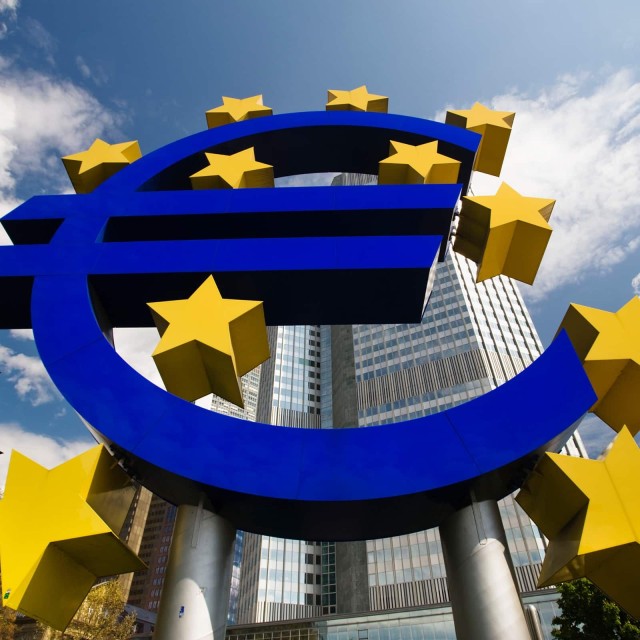This week, Mario Draghi finally presented his long-awaited report on Europe's competitiveness. He is credited with having once saved Europe during the financial crisis with the legendary "Whatever it takes” intervention. This time, the stakes are no less than the restoration of Europe's economic dynamism. Can Draghi turn the tide once again?
Dr. Draghi’s diagnosis: Go big or go home
The report vividly documents how Europe is quickly falling behind competitors like the U.S. or China in terms of innovation and productivity growth. Especially in key future sectors like artificial intelligence, pharmaceuticals, and biotechnology, the U.S. is leaving the European Union in the dust. Europe, on the other hand, excels in old industries where demand grows more slowly and technological breakthroughs are rarer. Consequently, productivity growth on the old continent is lower. Thirty years ago, Europe's productivity stood at 95% of the American level. Today, it is under 80%. And keeps trending down. Ouch!
To catch up, Team Draghi is calling for a genuine investment offensive: infrastructure, education, digitalization, research – practically everywhere. Europe would need to invest an additional 800 billion euros annually to keep pace. This would raise the investment ratio from 22% of GDP to 27%, a level not seen for half a century. Should we fail to boost the growth rate, Draghi sees the very foundations of our social model in acute danger.
He's right: The time when Europe could try to convince itself that everything would be fine once all the black swans (pandemic, energy prices, war) have flown away is definitively over.
Groundhog Day for the Eurobond...
To finance this, he suggests expanding the EU-wide collective debt, essentially a Corona recovery program on steroids. A plan that has neither a political nor constitutional chance of realization. And that's just as well, as it is not necessary. The bulk of the investments must come from the private sector anyway. The rest must be shouldered by national budgets. Reigniting the discussion on mutualizing debt would further undermine the already fragile coherence of European politics. And it would strengthen populists and euroskeptics, making reforms and the return of entrepreneurial confidence even less likely. So, hands off!
How investments should be kick-started
But the private sector is holding back on investments. To stimulate the necessary momentum here, a large-scale rethinking is necessary, a radical removal of investment barriers. Cut red tape, complete the Capital Markets Union, strengthen incentives for work and investment, support venture capital for young companies, and so on. Tedious, laborious reforms, and not as flashy as Eurobonds. But crucial to get Europe moving.
There's also no need for the protectionist industrial policy that seems to be floating in Draghi's mind. The new European Commission should position itself as a reform and liberalization commission. The Draghi plan should only become part of the government program in excerpts. However, it has already done a great service in raising awareness of the problem. After the launch of the report, Europe can no longer pretend and extend. It needs to roll up its sleeves and must do so fast. We should be grateful to Mario Draghi for having instilled a much-needed sense of urgency.
Grazie, Dottore!
Download To the point!
-
453.4 KB | September 13, 2024
This publication is addressed exclusively at recipients in the EU, Switzerland, Liechtenstein and the United Kingdom. This report is not being distributed by LBBW to any person in the United States and LBBW does not intend to solicit any person in the United States. LBBW is under the supervision of the European Central Bank (ECB), Sonnemannstraße 22, 60314 Frankfurt/Main (Ger many) and the German Federal Financial Supervisory Authority (BaFin), Graurheindorfer Str. 108, 53117 Bonn (Ger many) / Marie-Curie-Str. 24-28, 60439 Frankfurt/Main (Germany). This publication is based on generally available sources which we are not able to verify but which we believe to be reliable. Nevertheless, we assume no liability for the accuracy and completeness of this publication. It conveys our non-binding opinion of the market and the products at the time of the editorial deadline, irrespective of any own holdings in these products. This publication does not replace individual advice. It serves only for informational purposes and should not be seen as an offer or request for a purchase or sale. For additional, more timely in-formation on concrete investment options and for individual investment advice, please contact your investment advisor. We retain the right to change the opinions expressed herein at any time and without prior notice. Moreover, we retain the right not to update this information or to stop such updates entirely without prior notice. Past performance, simulations and forecasts shown or described in this publication do not constitute a reliable indicator of future performance. The acceptance of provided research services by a securities services company can qualify as a benefit in supervisory law terms. In these cases LBBW assumes that the benefit is intended to improve the quality of the relevant service for the customer of the benefit recipient. Additional Disclaimer for recipients in the United Kingdom: Authorised and regulated by the European Central Bank (ECB), Sonnemannstraße 22, 60314 Frankfurt/Main (Germany) and the German Federal Financial Supervisory Authority (BaFin), Graurheindorfer Str. 108, 53117 Bonn (Germany) / Marie-Curie-Str. 24-28, 60439 Frankfurt/Main (Germany). Deemed authorised by the Prudential Regulation Authority. Subject to regulation by the Financial Conduct Authority and limited regulation by the Prudential Regulation Authority. Details of the Temporary Permissions Regime, which allows EEA-based firms to operate in the UK for a limited period while seeking full authorisation, are available on the Financial Conduct Authority’s website.



